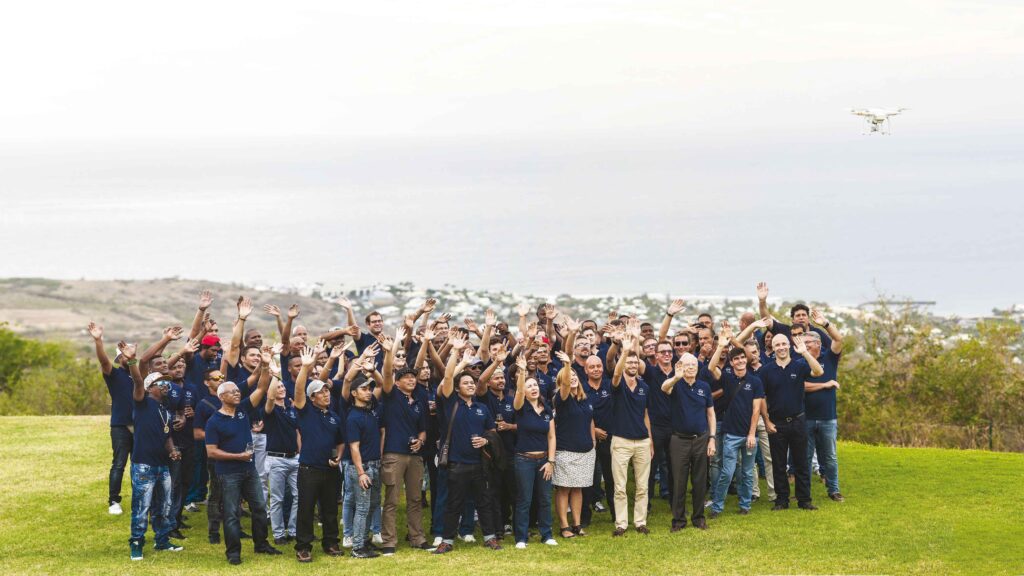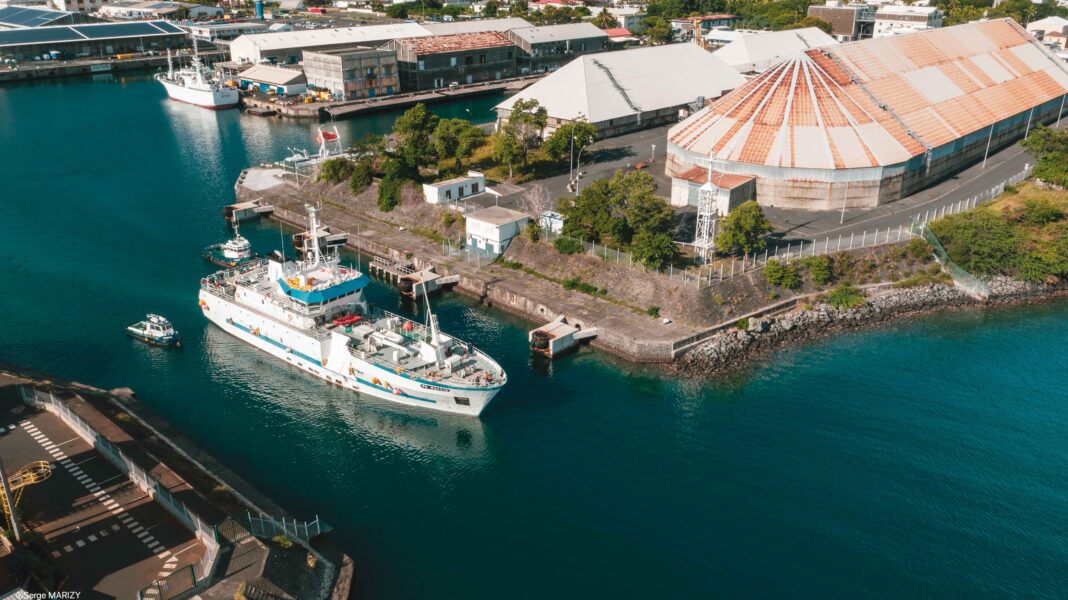From the Roaring Forties to the Tropic of Cancer, the Reunionese shipowner has been crisscrossing the Indian Ocean since 1947 in search of exceptional seafood products. If the international context is complex, the Sapmer teams were able to demonstrate agility and innovation in order to stay the course and continue to offer high-quality products caught sustainably and locally.
Lobster from the Saint-Paul and Amsterdam Islands, Kerguelen and Crozet toothfish and tropical tuna are the emblematic fisheries that have made Sapmer's reputation. Sustainability of the resource and technicality of preserving the product by freezing on board are the principles put in place since the first fishing campaign and applied to all its fisheries for optimal preservation of the organoleptic qualities of the products.. Today, the quality of Sapmer products recognized on the other side of the globe is a source of pride in Reunion. The commitment to preserving resources and limiting pressure on the environment has been rewarded by the award of international certifications.. Lobster and toothfish fisheries, renowned for their exemplary, benefit from the MSC label (Marine Stewardship Council) sustainable fishing. Tropical tuna side, Friend of the Sea certification and commitment as a participating company in the International Seafood Sustainability Foundation (ISSF) are all proof of the good practices implemented and Sapmer’s commitment to sustainability. “Consumer demands are legitimately strong when it comes to sustainability, quality and traceability. These requirements are part of Sapmer’s DNA and we benefit from 75 years of know-how in this area.. Tasting our products is in this sense not only a true gastronomic experience but also a commitment” explains Adrien de Chomereau, PDG de Sapmer.

Agility in the face of crisis
In 2020, the global pandemic has disrupted the organization of armaments which was able to transform this constraint into an opportunity. From an operational and human point of view first, the management of crew changes on the 15 ships had to be completely rethought. Sapmer also participated, with the competent authorities, to the establishment of a health corridor in Reunion. On the ground, the teams have experimented with teleworking which is still in force to this day with the application of a dedicated charter. At the commercial level then, the sudden closure of Asian borders, main importers of toothfish and lobster pushed Sapmer to adapt. “The closure of certain borders has had an impact on the evolution of prices. Our teams have been able to position themselves in new markets. New countries have been opened in addition to the 30 countries where we already sell our products”, continues the CEO of Sapmer. locally, in full confinement, the Sapmer counter, continuing its growth, has developed a distance selling solution with product collection via a drive. The point of sale therefore remained open to meet the expectations of Reunion Islanders..
Sapmer, player in the blue economy in Reunion
The health crisis has also enabled a rapprochement between maritime stakeholders in Reunion to strengthen the Reunion blue economy.. So, the renovation of the Austral ship entrusted to the Piriou shipyard made it possible to inject more than two million euros into the maritime economy in Reunion. “We are happy to actively contribute to the major project of the blue economy of Reunion and there are many ways to do it” launched Adrien de Chomereau on the occasion of the end of project ceremony.. Training and support for youth, SAPMER is, among other things, partner of the Classe TAAF project. With this program, the maritime CAP class at the Lycée Léon de Lépervanche can benefit from proximity to the armament through discovery workshops and for easier access to internships. The year 2021 was also marked by the sale of two tuna boats to rebalance activities and optimize the effects of the rebound which materialize in a clear resumption of activities. “We want to increase the value of our products, from exceptional fisheries, offer our customers a unique range of top quality seafood products, and thus contribute to the influence of fishing and gastronomy, Reunionese and French” concludes Adrien de Chomereau, who sets his sights on the coming decades.












